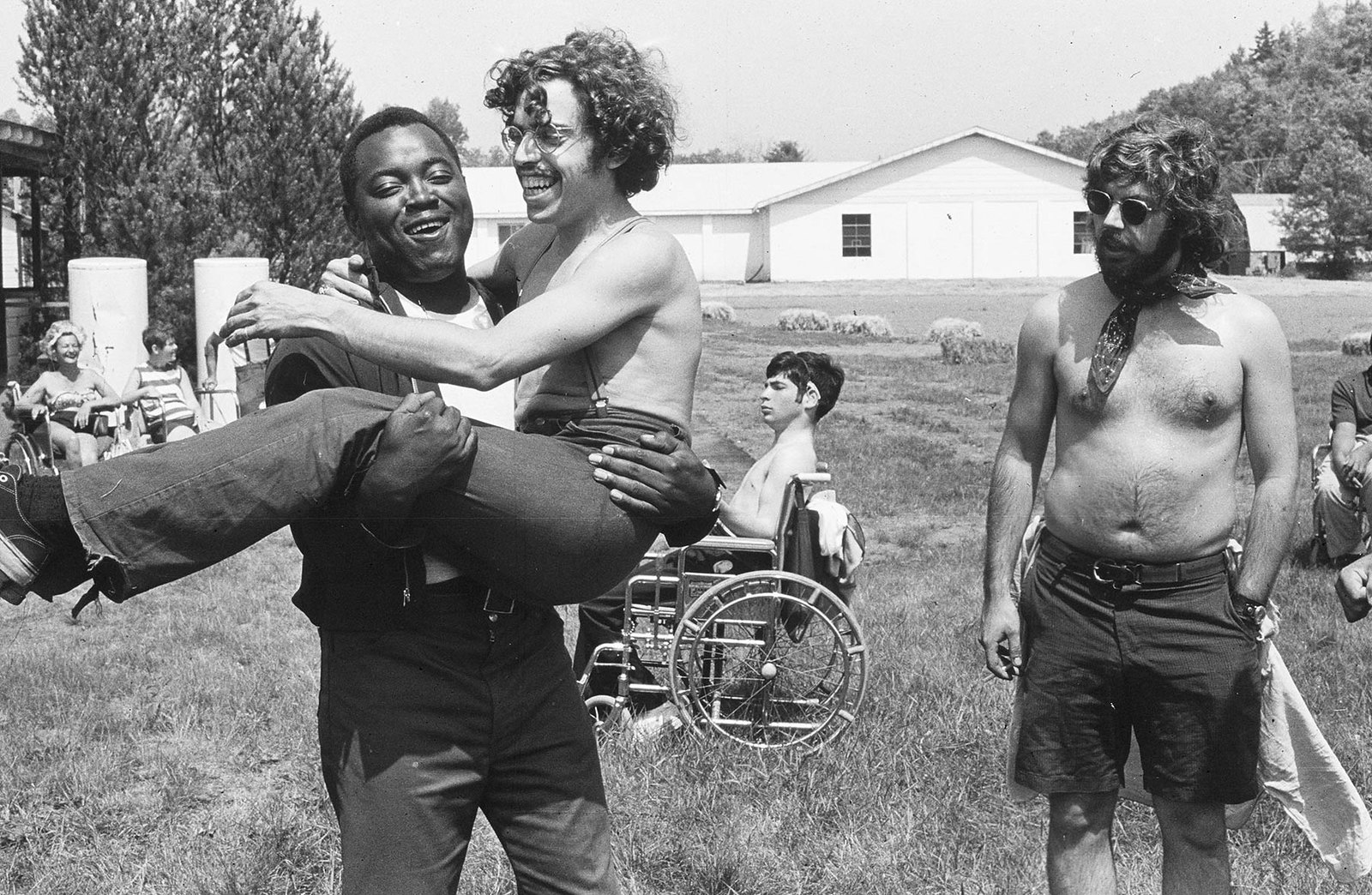
- Film
Crip Camp: Obama-Produced Doc Remembers a Very Special Woodstock
Its provocative, politically incorrect title serving as advance notice of the myth-smashing yet to unfold, Crip Camp, which just enjoyed its world premiere at the Sundance Film Festival, tells an emotionally affecting civil rights story that illustrates how barriers — despite the pat presentations history books generally give us — are broken through less with single moments of radical, raised-fist norm-toppling, and more often eroded, overcome and defended over and over again with the hard work and dogged determination of marginalized sub-groups, which then manifests in social awakening and broader societal buy-in.
Executive produced by Barack and Michelle Obama as the first effort out of the gate in their slate of programming for Netflix, this documentary takes as its titular focus Camp Jened, a teenage summer retreat first founded in the 1950s and eventually taken over in the 1970s by hippies with no formal training in special-needs care, but who provided an environment in which the disabled were empowered and given a platform to discuss their feelings and dream about a more equitable future. Serving as a sort of a cinematic empathy booster shot, with a well-balanced mixture of good humor and outrage, the movie conveys how successful communities breed understanding and solidarity, and that accord and deep sense of tethering in turn often serves as the catalyst and fuel for grander movements of social change.
Co-directed by Jim LeBrecht (himself a Camp Jened attendee, and film subject) and Nicole Newnham, Crip Camp is intellectually engaging and entertaining in almost equal measure. Valuable and illuminating home video footage from the camp make this no myopic, talking-head trip down memory lane, but rather a living, breathing portrait of poignant reflection. Composer Bear McCreary’s evocative score is complemented perfectly by a smart selection of soundtrack contributions from the era, including Buffalo Springfield’s “For What’s It Worth,” Tommy James and the Shondells’ “Crimson and Clover,” and more.
In chronicling the camp’s culture of personal assistance, the movie also shines a light on the vast range of physical and mental disabilities (one alumnus discusses the hierarchy of the disabled, and how polio victims were regarded by most in society with more sympathy, for example, than those with cerebral palsy), yet how their different abilities and skillsets could support and bolster one another.
Chief among its many eye-opening elements is how honestly Crip Camp depicts the sexual impulses of its disabled subjects, something few films ever do. This material, at once bawdy (the camp copes with an outbreak of crabs) and heartrending, dispels misguided notions of disabled “otherness,” and crucially shows their desires to be the same as anyone else’s. One of the film’s other most powerful moments involves a roundtable discussion in which campers bemoan the struggle over having any right to privacy as a physically disabled person.
Most often, Crip Camp disarms with radical simplicity and directness, as when LeBrecht talks about being a teenager with age-appropriate passions and interests, and says, “I wanted to be a part of the world, but I didn’t see anyone like me.” It is moments like these that have the ability to pierce the defensive armor of those who might struggle with the value of representational inclusion, and why its benefits provide enrichment for all, strengthening a sense of shared humanity.
If Crip Camp at times seems like two separate movies and struggles with threading the inarguably present connective tissue between Camp Jened and the later “Section 504” protests which would provide the underpinning of advancements in federal legal protections for the disabled, this fact doesn’t breed too much discordance. That’s because each of these stories is individually fascinating and wildly under-told. The real star of the movie, and central figure of each element, is Judy Heumann, a Camp Jened counselor who would go on to spearhead the disabled rights movement, serving as deputy director of the Center for Independent Living in Berkeley, California, and fighting to help pass the landmark Americans with Disabilities Act.
An edifying work that gives rightful voice to its subjects, Crip Camp also movingly illustrates, at a time before this framework was much-discussed or embraced, the intersectionality of the civil rights movement writ more broadly — with the Black Panthers feeding disabled protestors during an important sit-in, and a machinists union renting U-Haul vans and cushioning their walls to transport the disabled to hearings at the Capitol in Washington, D.C. In connecting the dots between organizing and advocacy — how sharpened intellectual arguments and the emotional identification they engender can light a conscience in people who might not have stopped to deeply consider the lives and experiences of others — Crip Camp helps put more optimism into the world, at a particular time in which that feeling is sorely needed.
Watch the trailer:

